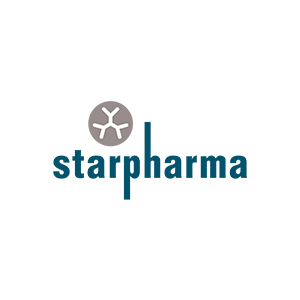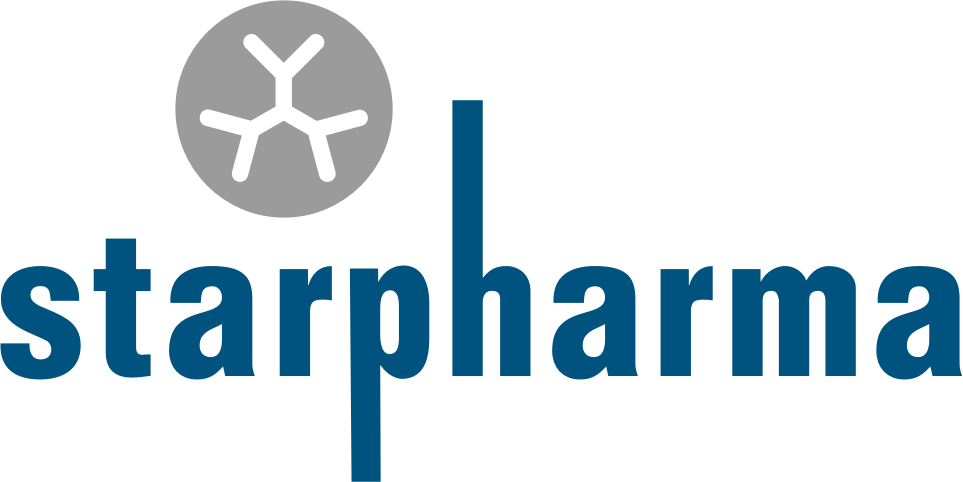Sep 27, 2023
DEP® irinotecan combination data to be presented at international oncology conference (ASX Announcement)

Highlights
- DEP® irinotecan combination data from Starpharma’s development program will be presented at an international oncology conference in Boston, US, from 11 to 15 October 2023.
- The data highlights DEP® irinotecan in combination with leading anti-cancer therapies, including immuno-oncology (IO) agents, in colorectal cancer (CRC) models.
- DEP® irinotecan in combination with an IO agent or a PARP1 inhibitor demonstrated superior anti-tumour activity and significant survival benefit when compared to these agents delivered alone in multiple CRC models.
- This promising combination data, together with the recently released positive clinical results for DEP® irinotecan, provide a strong rationale for clinical evaluation of DEP® irinotecan with these leading classes of cancer drugs.
- These combinations are commercially important because they increase the potential market opportunities for DEP® irinotecan and illustrate valuable synergies with successful product categories.
Melbourne, Australia; 27 September 2023: Starpharma (ASX: SPL, OTCQX: SPHRY) today announces the presentation of data that demonstrate the benefits of combining DEP® irinotecan with other important classes of anti-cancer therapies, including immuno-oncology (IO) agents, in models of human colorectal cancer. The data will be presented in Boston, US, at the International Conference on Molecular Targets and Cancer Therapeutics, co-hosted by the American Association For Cancer Research (AACR), the National Cancer Institute (NCI) and the European Organisation for Research and Treatment of Cancer (EORTC) from 11 to 15 October 2023. This poster presentation is one of three by Starpharma at the AACR-NCI-EORTC conference showcasing multiple DEP® programs, including DEP® irinotecan and Starpharma’s radiotheranostic, DEP® HER2-zirconium.
This DEP® irinotecan combination poster builds on Starpharma’s recently released positive clinical data on DEP® irinotecan in advanced colorectal cancer (CRC) and advanced platinum-resistant ovarian cancer2.
The DEP® irinotecan combination data to be presented show DEP® irinotecan improves the anti-tumour activity of an IO agent3 in the same class as the highly successful Merck product, Keytruda® (pembrolizumab), including in models of CRC that respond poorly to IO agents.
DEP® irinotecan in combination with the IO agent enhanced anti-tumour responses compared to the IO agent alone in a CRC model that is only moderately responsive to the IO agent. The combination also resulted in complete tumour regression and prolonged survival compared to the IO agent alone in this CRC model. In another model of CRC that was not responsive to the IO agent alone, the anti-tumour effects of the combination of DEP® irinotecan and the IO agent were enhanced when compared with either agent alone.
DEP® irinotecan’s ability to elicit an anti-cancer response to an IO agent in an otherwise non-responsive CRC tumour is significant. These improved results in CRC models provide a rationale for a potentially important new application of DEP® irinotecan in combination with IO agents, which are a leading and growing class of anticancer therapies.
Importantly, 85% to 95% of CRC patients do not respond to IO agents, such as Keytruda®, and this cancer remains a significant unmet medical need. These CRC patients do not respond to IO agents because their cancer is classified as microsatellite stable (MSS). These MSS cancers are more difficult to treat, more likely to recur, and typically less responsive to IO therapies than cancers that are not MSS. This DEP® irinotecan poster includes new clinical data from Starpharma’s Phase 1/2 trial of the product showing that all CRC patients who responded to DEP® irinotecan were MSS and, therefore, in the category that is more difficult to treat.
IO agents have changed the landscape of cancer treatment, demonstrating impressive results in treating a number of cancers, including lung cancer and melanoma, and generating over USD $60.3 billion in sales in 2021, with sales predicted to grow 14 to 17% per year to 20264.
IO anti-cancer drugs are designed to disrupt normal immune processes, allowing the body’s immune cells to effectively target and destroy cancer cells. Currently marketed IO drugs include Keytruda® (Merck), Opdivo® (BMS), Yervoy® (BMS), Tecentriq® (Genentech), and Imfinzi® (AstraZeneca). The global colorectal cancer drugs market was valued at ~US$14 billion in 2023 and is forecast to reach more than US$16 billion by 20275. Immunotherapies, such as Keytruda®, had approximately 25% market share in 20186.
Despite their impressive efficacy, IO agents can cause serious immune-mediated adverse events that are challenging to manage. Treatment with DEP® irinotecan resulted in no immune-mediated adverse events in CRC and ovarian patients, and therefore, there was no overlap of adverse events with those reported for IO agents – another benefit for this combination application.
In addition to the promising data for DEP® irinotecan in combination with the IO agent, Starpharma’s poster also includes data on DEP® irinotecan in combination with AstraZeneca’s Lynparza® (olaparib). Olaparib is from a class of drugs called PARP inhibitors. DEP® irinotecan also showed a synergistic effect in combination with olaparib in a model of CRC. The CRC model used was resistant to olaparib alone, but the combination of DEP® irinotecan and olaparib achieved increased anti-tumour effects compared to DEP® irinotecan alone, and also prolonged survival.
Lynparza® had global sales of more than US$2.6 billion in 20227 and is approved for use in ovarian, breast, pancreatic and prostate cancers.
The data showing DEP® irinotecan enhances anti-tumour responses of the IO agent and PARP inhibitor in models of cancer, together with the promising clinical efficacy and safety profile of DEP® irinotecan in CRC and ovarian cancer, provide a strong rationale for clinical evaluation of DEP® irinotecan in combination with IO agents and PARP inhibitors. These combination regimens are commercially important because they increase the potential market opportunities for DEP® irinotecan and illustrate synergies with successful product categories. Given these findings, Starpharma is engaging in discussions with potential commercial partners, including companies that currently market IO agents.
The above-mentioned poster is one of three posters Starpharma is presenting at the AACR-NCI-EORTC conference in October 2023.
- Thursday, 12 October (Poster Session A): A147: A HER2 targeted polylysine dendrimer nanoparticle radiotheranostic demonstrates excellent tumor accumulation, rapid clearance from circulation, and promising performance in PET-CT imaging.
- Friday, 13 October (Poster Session B): B039: A phase 1/2 study of dendrimer-enhanced (DEP) SN38 (SN38-SPL9111 / DEP irinotecan) in patients with advanced solid tumours.
- Saturday, 14 October (Poster Session C): C167: An SN38 dendrimer nanoparticle, DEP irinotecan (SN38-SPL9111), demonstrates efficacy in mouse models of gastrointestinal cancer and augments anti-tumor effects of immune checkpoint blockade and PARP inhibition.
Abstracts, which include a summary of the data, will be published on the conference website ahead of the conference, and the full posters will be made available by Starpharma following publication.
View or download the ASX Announcement here.
NOTES
About DEP® irinotecan
DEP® irinotecan is a novel, patented, nanoparticle formulation of SN38, the active metabolite of the widely used anti-cancer drug, irinotecan (marketed as Camptosar®), delivered using Starpharma’s proprietary DEP® technology. Camptosar® and all generic forms of conventional irinotecan carry ‘black box’ warnings mandated by the US Food and Drug Administration (FDA) for both neutropenia and severe diarrhoea, which can be dose-limiting and life-threatening. DEP® irinotecan has not resulted in severe diarrhoea in Phase 2 studies. DEP® irinotecan has patent filings to 2039 and up to an additional five years.
The severe diarrhoea caused by conventional irinotecan results from the production of toxic metabolites during the liver metabolism of irinotecan to SN38. DEP® irinotecan was designed to eliminate the need for liver metabolism, thereby avoiding the production of toxic metabolites.
About Starpharma’s DEP® irinotecan Phase 2 clinical trial
Starpharma is evaluating DEP® irinotecan as both a monotherapy and in combination with 5-fluorouracil (5-FU) and leucovorin (LV), which is a standard irinotecan combination regimen used in the treatment of CRC known as “FOLFIRI”. The Phase 2 DEP® irinotecan trial is being conducted at multiple sites, including Guy’s Hospital in London, Beatson Cancer Centre in Glasgow, Imperial College London, and the Kinghorn Cancer Centre in Sydney.
Clinical and commercial opportunity for DEP® irinotecan
The global colorectal cancer drugs market was valued at ~US$14 billion in 2023 and is forecast to reach more than US$16 billion by 20278.
Camptosar® and generic forms of conventional irinotecan are standard-of-care treatments for advanced CRC, with Pfizer’s Camptosar® achieving peak sales of ~US$1.1 billion. CRC accounts for approximately 10% of all new cancer diagnoses and is the second leading cause of cancer, affecting more than 1 million people annually, and is the fourth leading cause of cancer-related death.
CRC incidence is increasing markedly among younger age groups, with rates of colon cancer more than doubling in adults aged 20 to 54 since the 1990s. Studies have shown that, compared with adults born around 1950, those born around 1990 have double the risk of colon cancer and quadruple the risk of rectal cancer9.
About Starpharma’s DEP® platform
Starpharma has developed a unique and valuable delivery platform known as DEP® (Dendrimer Enhanced Product), which utilises dendrimers to improve the effectiveness and safety of conventional and new drugs. DEP® has been widely applied in oncology but also has application to other classes of drugs, such as anti-infectives. DEP® opens new possibilities for more controlled and precisely targeted drug delivery, increasing therapeutic and commercial opportunities and creating significant optionality. Additionally, the use of DEP® can create new intellectual property and extend the patent life for value-added versions of existing drugs.
Starpharma has developed an impressive pipeline of novel DEP® oncology assets. Its clinical-stage assets, DEP® cabazitaxel, DEP® docetaxel and DEP® irinotecan, are improved versions of commonly used chemotherapeutic drugs that have demonstrated improved anti-cancer effects and safety profiles. Additionally, Starpharma has a promising preclinical pipeline, including DEP® Antibody-Drug Conjugates (ADCs) and DEP® radiotheranostic products.
In addition to its internal programs, Starpharma has a number of partnered DEP® programs with global companies, including MSD, Genentech, Chase Sun, and AstraZeneca.
1 PARP: an enzyme called poly ADP ribose polymerase (PARP), which is involved in DNA repair.
2 ASX Announcement dated 13 September 2023: Positive DEP irinotecan clinical results presentation
3 Anti-programmed cell death protein 1 monoclonal antibody (anti-PD1 mAb)
4 https://www.globenewswire.com/en/news-release/2023/03/13/2626051/28124/en/120-Billion-Worldwide-Immuno-Oncology-Drugs-Industry-to-2032-Rising-Number-of-Cancer-Cases-Drives-the-Market.html
5 https://www.researchandmarkets.com/report/colorectal-cancer-drug
6 https://www.fortunebusinessinsights.com/industry-reports/colorectal-cancer-therapeutics-market-101945
7 https://www.globaldata.com/data-insights/healthcare/the-global-drug-sales-of-lynparza-1127391/
8 https://www.researchandmarkets.com/report/colorectal-cancer-drug
9 Siegel et al., Colorectal Cancer Incidence Patterns in the United States, 1974–2013, JNCI, 2017;109(8):djw322. https://doi.org/10.1093/jnci/djw322
This contains certain forward-looking statements.
